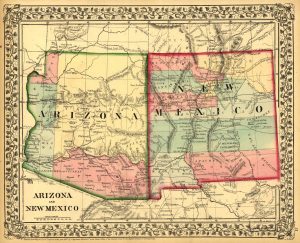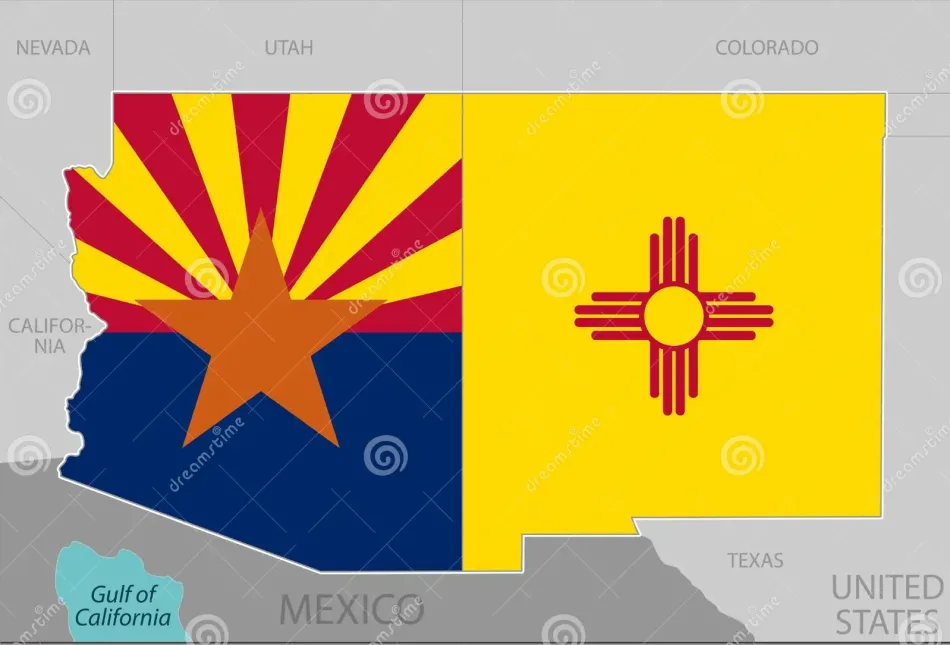The following appeared in Albuquerque Journal on June 22nd, 2025. Similar versions appeared in numerous other media outlets.

Recently, a group of Albuquerque business and economic leaders traveled to Phoenix to get some ideas on why the Phoenix economy is so much stronger than New Mexico’s. Ideas were exchanged and I’m sure a good time was had by all.
But, the trip was a waste of time. You don’t need to travel to see why Phoenix is more economically prosperous than Albuquerque or why Arizona does better than New Mexico. It certainly has nothing to do with TIFs or BIDs or any other gimmicks that are being promoted for Albuquerque.
In reality and nearly across the board, Arizona’s superior public policies make the state a fast-growing, successful place that leaves New Mexico in the dust. Here are just a few: Arizona’s top personal income tax rate is 2.5% while New Mexico’s is 5.9%. Allowing people to keep more money means attracting more people. With our oil and gas largesse and $61 billion sovereign wealth fund New Mexico could easily reduce or eliminate our income tax, but that’s not how our politicians think.
Arizona is a “right to work” state. New Mexico remains “forced unionism” for private sector workers. Forcing workers to pay political organizations for the privilege of working is just wrong.
While it does have a high sales tax rate, 8.38%, Arizona doesn’t have a small-business-killing gross receipts tax like New Mexico. Our GRT rates vary but are not much lower than Arizona’s sales tax.
Arizona has no state-level prevailing wage law on public construction projects (New Mexico does). This means that roads, bridges and schools in Arizona are built at market wage rates, not artificially inflated rates.

Arizona’s labor force participation rate is significantly higher than New Mexico’s meaning fewer people on welfare programs and more people paying taxes. New Mexico’s Medicaid population is also the highest in the nation which sucks money from taxpayers and government programs while disincentivizing work.
Business friendly Arizona has 10 companies listed on the Fortune 500 index including Freeport-McMoRan and Carvana (to name two). New Mexico has just three publicly traded companies headquartered in the state. Our largest such company, Public Service Company of New Mexico, is in talks to be sold. Arizona’s crime (while high when compared to national levels) is nowhere near as high as New Mexico’s.
Arizona’s K-12 system has a variety of school choice options and outperforms New Mexico’s (which is dead last nationally). Arizona students outperform New Mexico’s while spending 45% less money per student.
A good school system is more than just a nice amenity. Preparing young people for 21st century jobs makes Arizona more attractive to businesses and can keep young people involved in productive behavior rather than crime and drugs.
To top it all off, according to the leading tracker of such information, which is called “State Higher Education Finance,” Arizona spends approximately one-third what New Mexico spends (per student) on higher education ($6,571 vs. $18,754). Is there anything that New Mexico policymakers can point to that we are getting for all of that additional money we’re spending? Of course, many of New Mexico’s big spending projects are funded thanks to the oil and gas industry which dominates our state budget. Arizona has little oil and gas to speak of, but thanks to superior public policies across numerous areas of the economy it is faster-growing economically and in terms of population.
Our community leaders and more importantly the governor and Legislature need to spend some time researching the numerous public policy advantages Arizona holds over New Mexico and embrace them.

